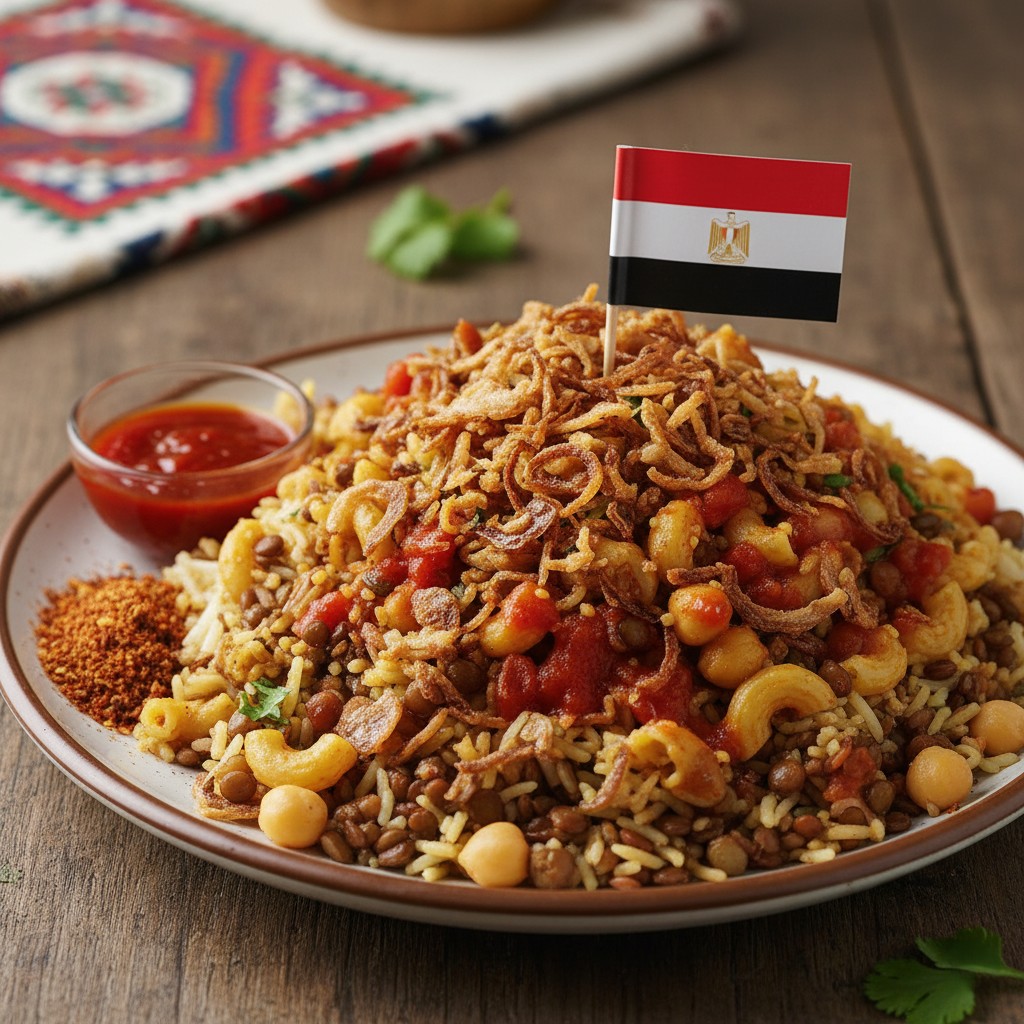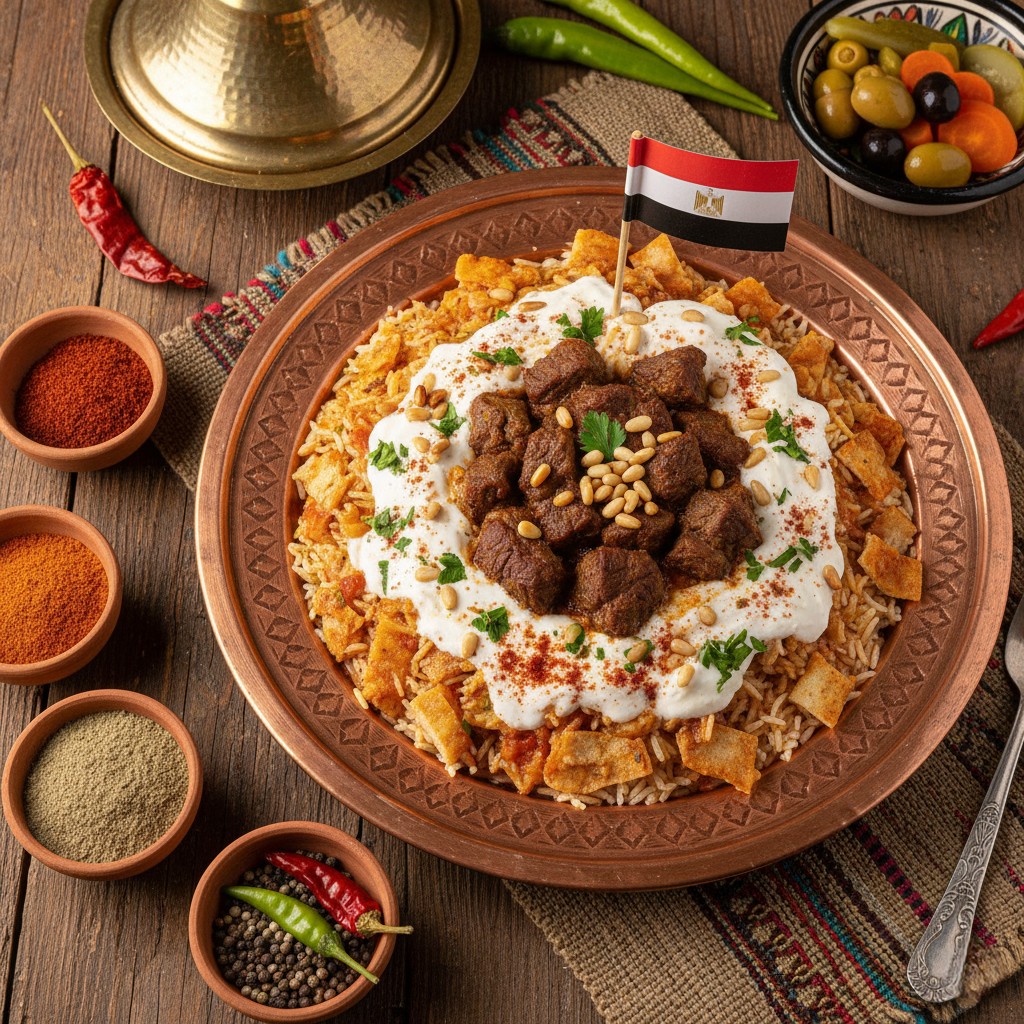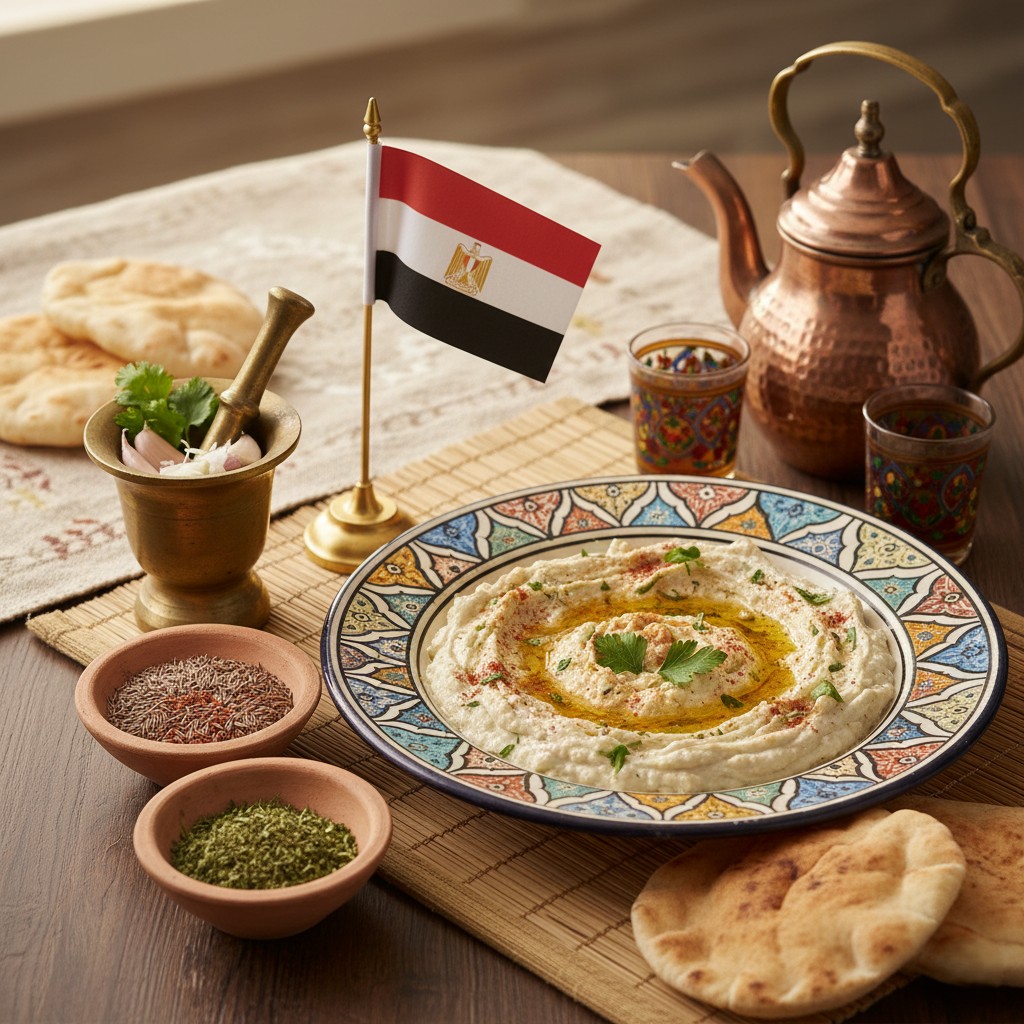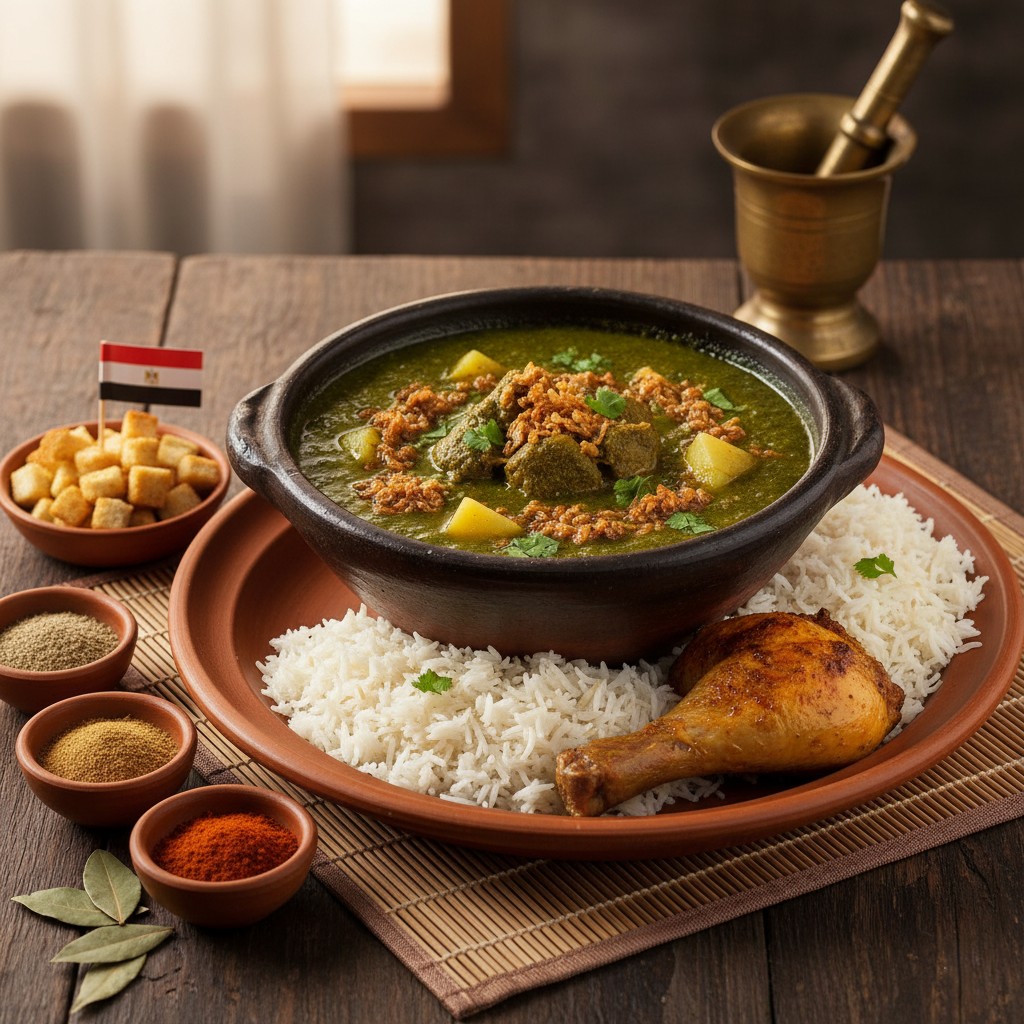Koshary, also spelled Koshari or Koshery, is a beloved street food dish that originated in Egypt during the early 20th century. This hearty, flavorful meal typically consists of a base layer of pasta, topped with lentils, tomato sauce, fried onions, chickpeas, and a sprinkle of vinegar. The combination may seem unusual to outsiders, but for Egyptians, Koshary is comfort food at its finest.
The story goes that Koshary was created by street vendors in Cairo’s downtown area as a way to feed the working-class population. With ingredients readily available and affordable, these entrepreneurs crafted a dish that would become an iconic staple of Egyptian cuisine. Over time, Koshary spread throughout the country, with variations emerging in different regions.
Today, Koshary is enjoyed by people from all walks of life, from street vendors to high-end restaurants. Its popularity extends beyond Egypt’s borders as well, with enthusiasts around the world trying their hand at making this beloved dish.
Origin and History
As the story goes, Koshary was first served by a street vendor named Ahmed el-Toukhy in the 1910s. El-Toukhy would sell his version of Koshary from a small cart near the Egyptian Museum in Cairo’s Tahrir Square. The dish quickly gained popularity among locals and visitors alike, with its unique combination of textures and flavors.
Over time, other vendors began to offer their own takes on Koshary, experimenting with different ingredients and presentation styles. Today, there are countless variations of Koshary across Egypt, each with its own regional flair. Whether served from a street cart or in a cozy café, Koshary remains an integral part of Egyptian culture.
Egypt (Location, Culture…)
Egypt is a country located in Northeast Africa, bordered by the Mediterranean Sea to the north, the Red Sea to the east, and Sudan to the south. With over 100 million people, Egypt is one of the most populous countries in the world. The capital city, Cairo, is home to over 20 million inhabitants.
Egyptian culture is a rich tapestry of traditions, influences from ancient civilizations like the Pharaohs and Greeks, and modern-day urbanization. From the pyramids of Giza to the bustling streets of Alexandria, Egypt’s history and architecture are a testament to its storied past. With a vibrant arts scene, delicious cuisine, and warm hospitality, Egypt is a country that has captivated travelers for centuries.
Recipe: Egyptian Koshary
Ingredients:
- 1 cup pasta (preferably small shapes like macaroni or elbow noodles)
- 1 cup cooked lentils
- 1 cup tomato sauce (homemade or store-bought)
- 1/2 cup fried onions
- 1/2 cup chickpeas
- 2 tablespoons vinegar
- Salt and pepper to taste
- Optional: chopped parsley, cilantro, or sumac for garnish
Instructions:
- Cook pasta according to package instructions. Drain and set aside.
- In a separate pot, cook lentils until tender. Drain and set aside.
- Heat tomato sauce in a pan over medium heat.
- Fry onions in a separate pan until golden brown. Drain on paper towels.
- Add chickpeas to the pan with the fried onions and stir-fry for about 2 minutes.
- To assemble Koshary, place pasta at the bottom of a serving dish or individual plate. Top with lentils, tomato sauce, fried onions and chickpeas. Drizzle with vinegar and season with salt and pepper to taste.
Conclusion
Visiting the South of North Africa (SANA) region is an adventure you won’t soon forget! From the ancient cities of Morocco to the vibrant markets of Tunisia, this region is steeped in history, culture, and natural beauty.
As you explore the desert landscapes of Egypt’s Western Desert or Morocco’s Sahara, keep your eyes peeled for the majestic Atlas Mountains, the Nile River, or the mythical Sphinx. Legend has it that the Sahara was once home to a magical oasis, hidden from view by the sands of time. Take a moment to appreciate the stars twinkling above and the silence of the desert night – a truly humbling experience.
Egyptian Phrases for Tourists
- “Ahlan wa sahlan” (أهلا وسهلا) – Welcome!
- “Shukraan” (شكرا) – Thank you
- “Tafadhal” (تفضل) – Please
- “InshAllah” (إن شاء الله) – God willing
- “Ma’a esh-sha’ Allah” (ما مع الشا الله) – What a beautiful sight!
Note: These phrases are written in Arabic script, but the English translation is provided for ease of understanding. Enjoy your culinary adventure through Egypt and beyond!





